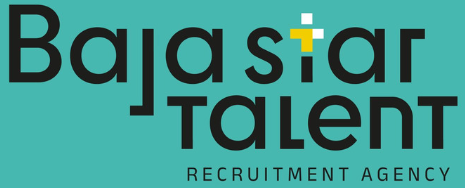HR directors have rapidly implemented AI with little research to back it up.

If artificial intelligence is transforming the way we work, Human Resources departments (also known as People Management, Human Capital, Talent Management, etc.) are no exception and have experienced significant transformational momentum in the past year.
HR directors have rapidly implemented AI with little research to back it up. This brings both advantages and disadvantages: HR professionals now oversee the process, making their work easier but also introducing certain risks.
Without delving into the pros and cons of AI, what applications are currently in use?
AI Applications in Human Resources
AI is impacting the entire talent management process, especially in resume screening and selection. Applicant Tracking Systems (ATS) enhance and speed up selection processes, ensuring candidates match job requirements. For companies, hiring the right candidates is crucial.
Currently, here are some AI applications being used by large companies:
- HireVue: Analyzes video interviews and evaluates candidates based on body language, tone of voice, and keywords. It provides valuable insights into candidates’ skills and suitability. Clients include Unilever, Mercedes-Benz, St. Jude Children’s Research Hospital, and General Mills.
- Braintrust AIR: Simplifies finding, hiring, and managing global workers. AI-driven features include job description generators, candidate matching, and asynchronous interviews. NASA, TaskRabbit, Walmart, Nextdoor, Deloitte, BlueCross BlueShield, Wayfair, PacificLife, and Nike are among its users.
- Pymetrics: Assesses cognitive and emotional skills through neuroscientific games and AI algorithms. Compares results with successful profiles in the company to find the best fit. Used by Boston Consulting Group, Swarovski, ANZ, Kraft Heinz, and Colgate-Palmolive.
- HireEZ: Uses AI to find candidates across different platforms, optimizing the search and filtering process with specific recruitment criteria. Clients include PWC, PNGWing, Reddit, Twitter, Booking, and WilsonHCG.
- Eightfold.ai: Employs deep learning to help companies find, hire, and retain talent. Analyzes employment history, skills, and potential future capabilities of candidates. Used by Bayer, Chevron, Coca-Cola Europacific Partners, Vodafone, Activision, OneTen, DexCom, Nutanix, Eaton, BNY Bellon, Box, and NTTData.
- Textio: An AI-assisted writing tool that helps create more attractive and inclusive job descriptions, improving candidate diversity and quality. Employed by Uber, Nasdaq, T-Mobile, Strava, PSCU, and Glowforge in their talent searches.
- Entelo: Enhances recruitment precision and efficiency by using data and predictive algorithms to identify potential candidates, analyze resumes, and predict success likelihood in specific roles. Clients include Goldman Sachs, Netflix, Meredith, The New York Times, and Xero.
What Does the Research Say?

Given the rapid advancements in AI, research on artificial intelligence in HR is relatively recent. In healthcare, some findings already highlight the need for caution to ensure AI-driven solutions promote fairness, transparency, and equity, addressing concerns like algorithmic bias, data privacy, and the impact on human labor.
Using AI in HR management optimizes operational efficiency, improves employee experience, and helps companies achieve long-term goals. However, it also presents challenges such as data security, privacy, and ethical considerations.
Future research must provide reliable data to rigorously evaluate the implications of AI use. It’s crucial to remember that AI is applied to people and their data to predict candidate suitability.
The initial AI screening will set the tone for the selection process. Thus, it acts as an entry barrier that doesn’t cater to emotions or needs but aids in automatic and rapid decision-making.
